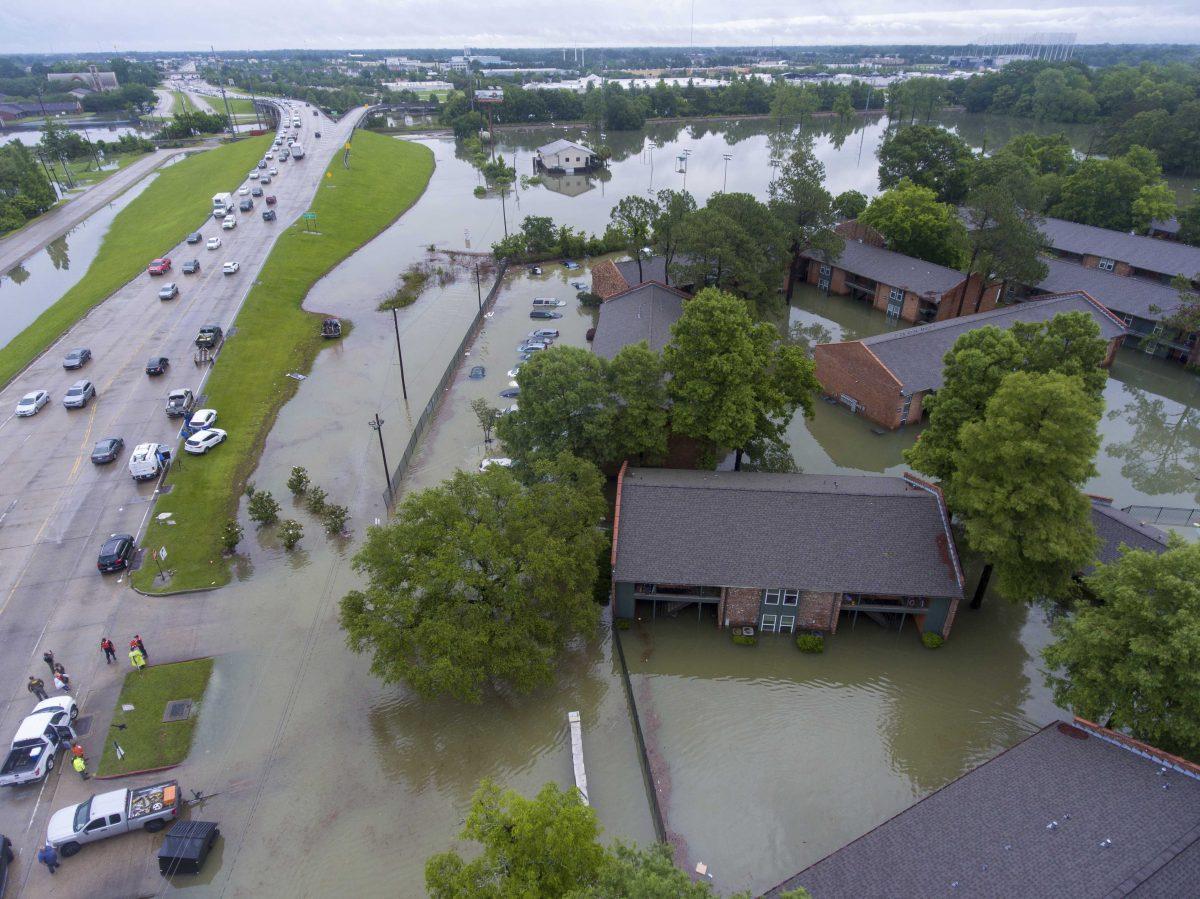In its most recent flooding event, Lake Charles was pelted with 15 inches of rain in the span of 12 hours. The water submerged entire vehicles, trapped children in their schools and damaged hundreds of homes.
This extreme flooding that would have been bad enough on its own followed a year of devastating weather events in Lake Charles.
Hurricane Laura, a Category 4 storm, ravaged the city last August, leaving behind years worth of damage and hundreds of displaced residents. Then followed the new terror of Hurricane Zeta, and, in February, a frost that burst pipes and left tens of thousands in Louisiana without power. And if that wasn’t enough, meteorologists now predict the 2021 hurricane season will break records as the sixth year in a row above normal activity.
The residents of Lake Charles have endured repeated environmental disasters, all through a historic pandemic ‒ far more than any community should have to bear.
Though climate change is not entirely to blame for these weather events, it contributes significantly to their frequency and intensification. Increased temperatures in the Gulf of Mexico allow storms to absorb more energy and water vapor as they pass over, leading to heavier rainfall and more intense weather conditions.
The role climate change plays in worsening these deadly storms cannot be ignored.
“Climate change is something that is affecting this community,” said Nic Hunter, Lake Charles’ Republican mayor, following the most recent flooding. “I know that phrase can engender a lot of emotions with different people, but it is real and it is happening. I just think it would be ridiculous to say that something is not happening.”
While it is vital for the future of the Earth to treat the causes of climate change and cut global greenhouse gas emissions, Louisiana cannot ignore the symptoms of rising global temperatures that its residents are forced to grapple with today. Extreme weather is one manifestation of this problem, and the coastal land loss crisis that plagues the state is another.
Louisiana loses a football field of land every hour due to the combined effects of sediment loss from levying of the Mississippi River, salt water intrusion caused by oil and gas pipelines, natural land subsidence and, significantly, rising seas due to climate change. The combination of these factors gives Louisiana the highest rates of relative sea-level rise in the world, and its effects have already made climate refugees of Louisiana residents.
The Coastal Protection and Restoration Authority issues the Coastal Master Plan every 5 years under a mandate from the state legislature, outlining projects to preserve and rebuild land along the coast. CPRA has already completed hundreds of projects, focusing its funds evenly between restoration and risk reduction.
The legislature does not approve CPRA’s entire budget, but rather offers funding on a project-by-project basis, increasing the difficulty of completing these essential projects.
The Coastal Master Plan is an important reaction to the disastrous consequences of decades of poor environmental policy choices. But the fact of the matter is that even if the legislature funded all of CPRA’s projects, the data suggests that there will still be significant portions of coastal Louisiana underwater in the next century.
This fact doesn’t mean the work of CPRA is an unworthy endeavor, but it does mean that Louisiana cannot ignore the gravity of these problems any longer. The impacts of climate change have and will continue to bring struggle to the lives of Louisiana residents, whether that be through extreme weather, coastal land loss or other results of global temperature rise. Bold international policy is necessary to combat climate change, but it is not a promise Louisiana can rely on.
Recognizing the reality of climate change is not alarmist, but rather the only practical path forward for the state.
After all, how often can southwest Louisiana face unusually active hurricane seasons before that becomes the new normal? And how much longer can coastal residents watch waters creep higher before politicians decide it’s time to act?
Lake Charles cannot be expected to rebuild over and over again with nothing but its deeply admirable resilience, and residents in southwest Louisiana must not be left to deal with inevitable land loss on their own. Ignoring these issues only guarantees worsening inequalities and economic despair driven by the climate crisis.
After every environmental disaster, legislators in Washington, D.C. and Baton Rouge offer their thoughts and prayers to the people of southwest Louisiana. It is far overdue that they offer their solutions.
Claire Sullivan is an 18-year-old coastal environmental science sophomore from Southbury, Connecticut.





